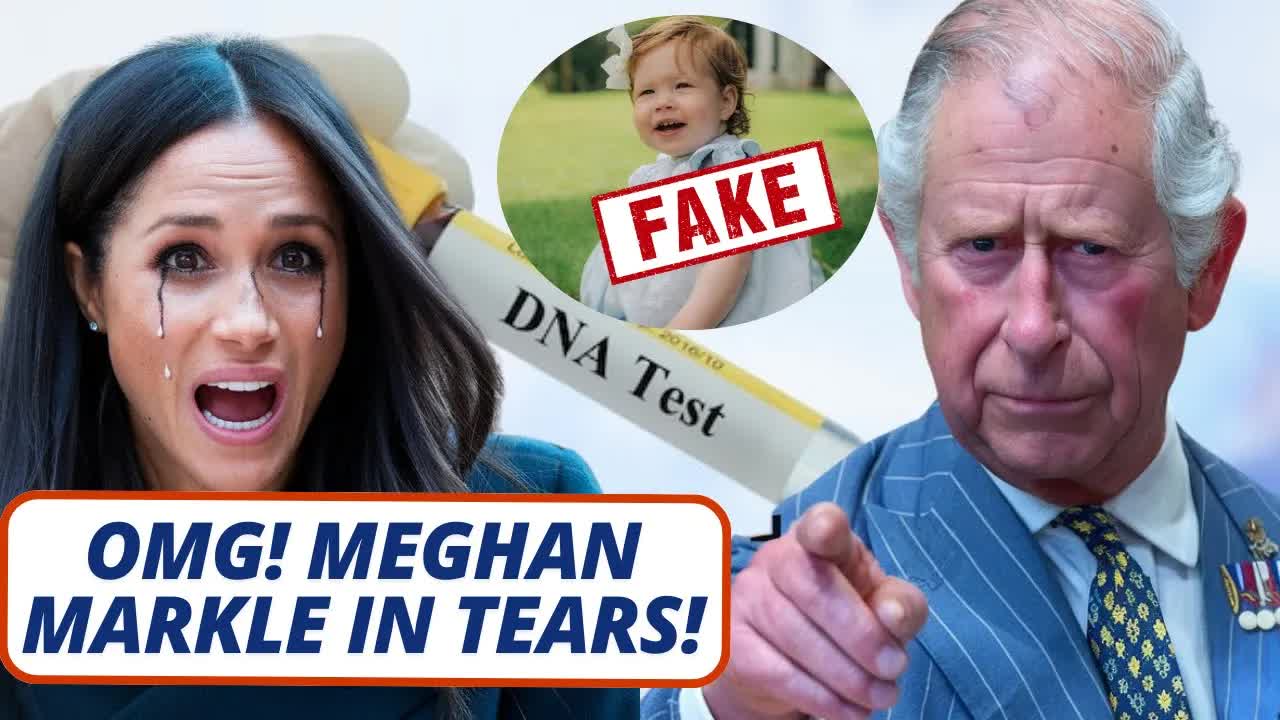In a recent twist of events, the name chosen by Meghan Markle and Prince Harry for their daughter, Lilibet, has sparked a significant uproar.
According to royal insiders, this choice has reportedly left the late Queen Elizabeth II feeling deeply upset.
The controversy stems from claims that Meghan sought permission to use the name, which some experts believe was never granted.
Royal biographer Angela Levin has been vocal about her disapproval of Markle’s alleged trademarking of the name Lilibet prior to her daughter’s birth.
During a discussion on GB News, Levin described this move as “appalling,” suggesting it was a misguided attempt to commercialize a name steeped in family legacy.
Many royal watchers are viewing this as an opportunistic strategy to profit from a name that carries profound emotional weight for the royal family.
The origins of the name Lilibet trace back to Queen Elizabeth’s childhood, where it was a term of endearment used by her family.
It was derived from her early struggles to pronounce her own name, a mispronunciation that her grandfather, King George V, affectionately adopted.
This intimate nickname became a cherished part of her identity, reserved for her closest relatives, including her late husband, Prince Philip.
According to Robert Hardman’s new book, “Charles III, New King, New Court,” the decision to name their daughter Lilibet reportedly took the Queen by surprise.
An unnamed palace aide recounted that the Queen was visibly upset when the Sussexes announced the name publicly, claiming she felt blindsided by the whole situation.
This reaction underscores the emotional significance the name held for her.
Hardman also revealed that the Queen had confided in palace aides about her feelings, stating, “I don’t own the palaces or the paintings, only my name, and now they’ve taken that.”
This poignant remark highlights how personally invested she was in the name, viewing it as a unique treasure that belonged solely to her family.
Following the announcement, conflicting reports emerged about whether the Queen had been consulted regarding the name.
While some outlets suggested she felt pressured to agree, others indicated she was not directly asked for permission.
Buckingham Palace has remained tight-lipped on the matter, leaving many questions unanswered.
In response to the media frenzy, the Duke and Duchess of Sussex initiated legal action against various news outlets, asserting that reports claiming the Queen objected to the name were false and defamatory.
Their spokesperson maintained that discussions with the Queen had indeed taken place, though the specifics of those conversations remain undisclosed.
The couple’s choice to trademark Lilibet has ignited further debates about their complicated relationship with the royal family.
Critics argue that this move indicates an attempt to capitalize on their royal heritage while simultaneously distancing themselves from royal duties.
Levin emphasized that the name should be treated as a private expression of familial love, rather than something to be commercialized.
During her appearance on GB News, Levin reiterated her belief that the name Lilibet is an intimate one, meant solely for the Queen’s family.
She expressed concern that the Sussexes’ actions might mislead the public into thinking the Queen was endorsing their commercial endeavors.
This sentiment was echoed by host Eamon Holmes, who questioned the implications of trademarking such a personal name.
As the Sussexes navigate their dual identities as public figures and entrepreneurs, the public response remains divided.
Many sympathize with the late Queen’s reported feelings of intrusion, while others defend the Sussexes’ intentions to honor her legacy.
The ongoing scrutiny of their actions continues to fuel conversations about the complexities of their roles within the royal framework.
With Buckingham Palace and representatives for the Sussexes remaining silent on these latest developments, royal watchers are left speculating about the future of this family dynamic.
As the story unfolds, it raises questions about the boundaries of personal and public life within one of the world’s most famous families.
What do you think about this situation?
The dialogue surrounding the Sussexes and their choices is sure to continue, keeping everyone on their toes as we watch how this narrative develops.
Related Stories

